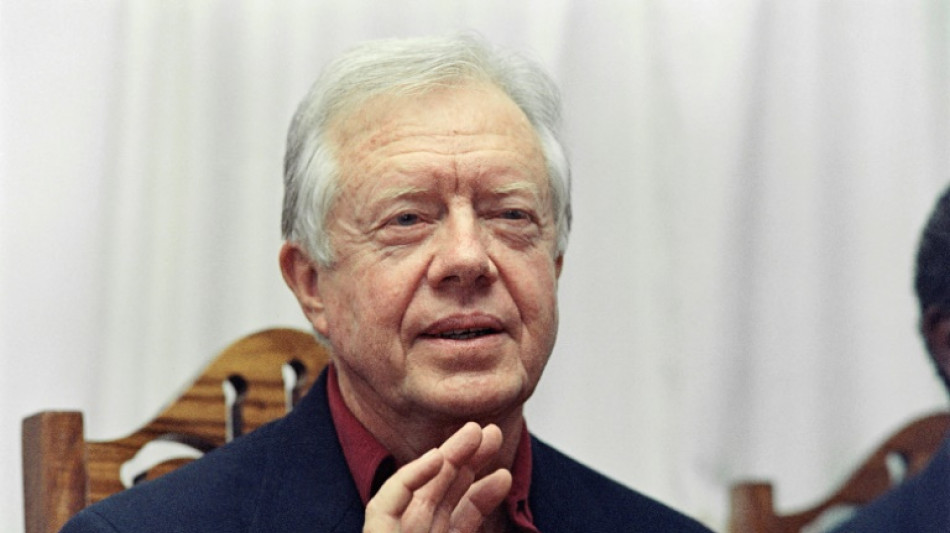
-
 Villa face Chelsea test as Premier League title race heats up
Villa face Chelsea test as Premier League title race heats up
-
Spurs extend domination of NBA-best Thunder

-
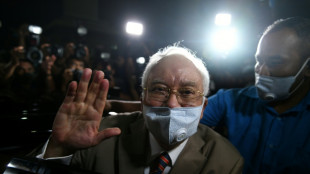 Malaysia's Najib to face verdict in mega 1MDB graft trial
Malaysia's Najib to face verdict in mega 1MDB graft trial
-
King Charles calls for 'reconciliation' in Christmas speech
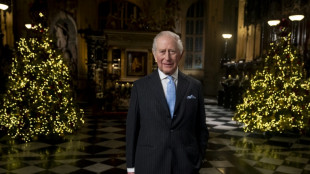
-
 Brazil's jailed ex-president Bolsonaro undergoes 'successful' surgery
Brazil's jailed ex-president Bolsonaro undergoes 'successful' surgery
-
UK tech campaigner sues Trump administration over US sanctions

-
 New Anglican leader says immigration debate dividing UK
New Anglican leader says immigration debate dividing UK
-
Russia says made 'proposal' to France over jailed researcher

-
 Bangladesh PM hopeful Rahman returns from exile ahead of polls
Bangladesh PM hopeful Rahman returns from exile ahead of polls
-
Police suspect suicide bomber behind Nigeria's deadly mosque blast

-
 AFCON organisers allowing fans in for free to fill empty stands: source
AFCON organisers allowing fans in for free to fill empty stands: source
-
Mali coach Saintfiet hits out at European clubs, FIFA over AFCON changes

-
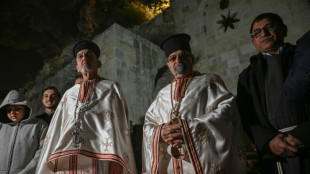 Last Christians gather in ruins of Turkey's quake-hit Antakya
Last Christians gather in ruins of Turkey's quake-hit Antakya
-
Pope Leo condemns 'open wounds' of war in first Christmas homily
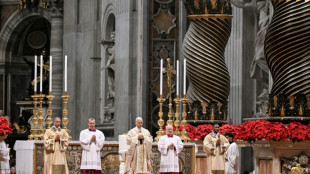
-
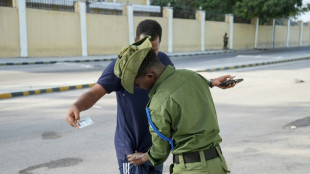 Mogadishu votes in first local elections in decades under tight security
Mogadishu votes in first local elections in decades under tight security
-
'Starting anew': Indonesians in disaster-struck Sumatra hold Christmas mass
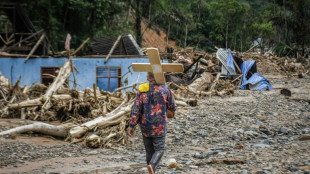
-
 Cambodian PM's wife attends funerals of soldiers killed in Thai border clashes
Cambodian PM's wife attends funerals of soldiers killed in Thai border clashes
-
Prime minister hopeful Tarique Rahman arrives in Bangladesh: party

-
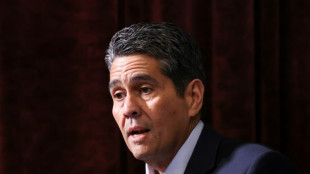 Pacific archipelago Palau agrees to take migrants from US
Pacific archipelago Palau agrees to take migrants from US
-
Pope Leo expected to call for peace during first Christmas blessing
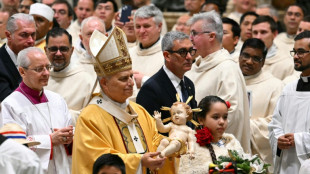
-
 Australia opts for all-pace attack in fourth Ashes Test
Australia opts for all-pace attack in fourth Ashes Test
-
'We hold onto one another and keep fighting,' says wife of jailed Istanbul mayor

-
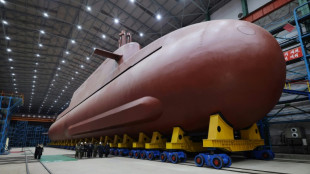 North Korea's Kim visits nuclear subs as Putin hails 'invincible' bond
North Korea's Kim visits nuclear subs as Putin hails 'invincible' bond
-
Trump takes Christmas Eve shot at 'radical left scum'

-
 3 Factors That Affect the Cost of Dentures in San Antonio, TX
3 Factors That Affect the Cost of Dentures in San Antonio, TX
-
Leo XIV celebrates first Christmas as pope
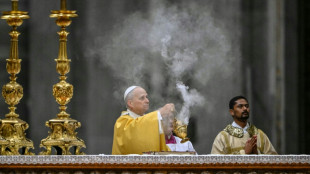
-
 Diallo and Mahrez strike at AFCON as Ivory Coast, Algeria win
Diallo and Mahrez strike at AFCON as Ivory Coast, Algeria win
-
'At your service!' Nasry Asfura becomes Honduran president-elect
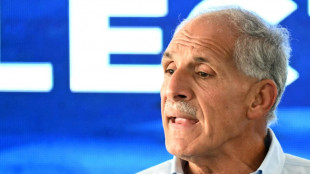
-
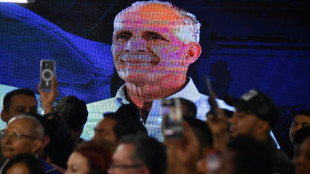 Trump-backed Nasry Asfura declared winner of Honduras presidency
Trump-backed Nasry Asfura declared winner of Honduras presidency
-
Diallo strikes to give AFCON holders Ivory Coast winning start

-
 Spurs captain Romero facing increased ban after Liverpool red card
Spurs captain Romero facing increased ban after Liverpool red card
-
Bolivian miners protest elimination of fuel subsidies
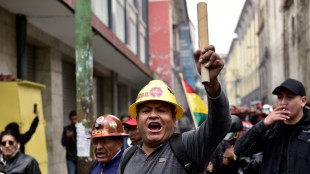
-
 A lack of respect? African football bows to pressure with AFCON change
A lack of respect? African football bows to pressure with AFCON change
-
Trump says comedian Colbert should be 'put to sleep'

-
 Mahrez leads Algeria to AFCON cruise against Sudan
Mahrez leads Algeria to AFCON cruise against Sudan
-
Southern California braces for devastating Christmas storm
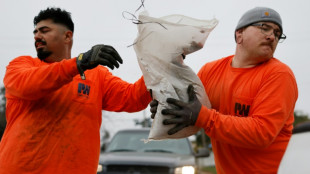
-
 Amorim wants Man Utd players to cover 'irreplaceable' Fernandes
Amorim wants Man Utd players to cover 'irreplaceable' Fernandes
-
First Bond game in a decade hit by two-month delay

-
 Brazil's imprisoned Bolsonaro hospitalized ahead of surgery
Brazil's imprisoned Bolsonaro hospitalized ahead of surgery
-
Serbia court drops case against ex-minister over train station disaster
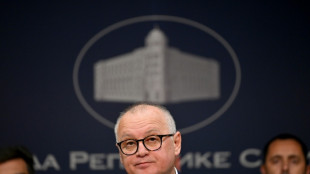
-
 Investors watching for Santa rally in thin pre-Christmas trade
Investors watching for Santa rally in thin pre-Christmas trade
-
David Sacks: Trump's AI power broker
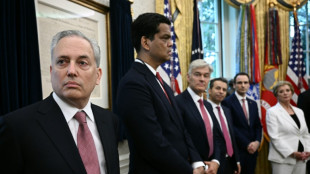
-
 Delap and Estevao in line for Chelsea return against Aston Villa
Delap and Estevao in line for Chelsea return against Aston Villa
-
Why metal prices are soaring to record highs

-
 Stocks tepid in thin pre-Christmas trade
Stocks tepid in thin pre-Christmas trade
-
UN experts slam US blockade on Venezuela

-
 Bethlehem celebrates first festive Christmas since Gaza war
Bethlehem celebrates first festive Christmas since Gaza war
-
Set-piece weakness costing Liverpool dear, says Slot

-
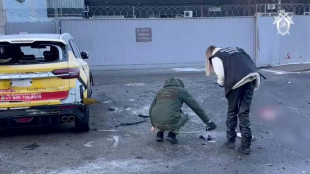 Two police killed in explosion in Moscow
Two police killed in explosion in Moscow
-
EU 'strongly condemns' US sanctions against five Europeans


Key moments in the life of Jimmy Carter
Jimmy Carter's 1977-1981 presidency included successes like the Camp David peace accords, but also enough controversy for US voters to see him as weak -- and send him packing after only one term.
Carter's legacy however was largely built on his post-presidency, the longest in US history.
Here are a few key moments in the life of Carter, who died Sunday at the age of 100.
- The Panama Canal -
During his first year in office, Carter went back on a campaign promise and decided to hand back management of the Panama Canal -- which had been in US military control since its construction at the start of the 20th century.
"Fairness, and not force, should lie at the heart of our dealings with the nations of the world," he said at the signing of the canal treaties with Panamanian leader Omar Torrijos on September 7, 1977.
Carter was ridiculed for the move, which gave Panama control over the canal linking the Atlantic and Pacific Oceans at the end of 1999.
History, however, has looked upon the deal as a deft bit of diplomacy.
Giving Panama a meatier role in the canal's management in the run-up to the transfer allowed for stability, and broke with America's image as an overbearing imperialist power in Latin America.
Reacting to Carter's death on Sunday, President Jose Mulino said the former US leader helped Panama achieve "full sovereignty of our country."
- Morality in politics -
Upon his arrival in the Oval Office, Carter looked to distance himself from the realpolitik practiced by his predecessors -- a vestige of the Cold War -- and placed human rights at the heart of his agenda.
"Our principal goal is to help shape a world which is more responsive to the desire of people everywhere for economic well-being, social justice, political self-determination and basic human rights," he said in a 1978 speech at the US Naval Academy.
In concrete terms, Carter notably signed the International Covenant on Civil and Political Rights in 1977. It was eventually ratified by the United States in 1992 after being blocked for years by the Senate.
- Camp David Accords -
In September 1978, Carter invited Israeli premier Menachem Begin and Egyptian president Anwar Sadat to Camp David, the presidential retreat outside Washington.
After 13 days of secret negotiations under Carter's mediation, two accords were signed that ultimately led to a peace treaty the following year.
The diplomatic triumph was cited when Carter was awarded the Nobel Peace Prize.
- 'Crisis of confidence' -
In the summer of 1979, the economy rocked by inflation and his approval rating in free fall, Carter addressed the American people in a nationwide televised speech on July 15.
In that half-hour, he responded to his critics on his lack of leadership, instead laying the blame on a national "crisis of confidence."
"The erosion of our confidence in the future is threatening to destroy the social and the political fabric of America," he said.
The speech was poorly received and would come back to haunt him. Five cabinet members resigned that week.
- Iran hostage crisis -
The hostage crisis -- more than 50 Americans were held for 444 days at the US embassy in Tehran from November 1979 to January 1981 -- was the death knell for Carter's presidency.
A failed military rescue mission in April 1980 all but extinguished his chances of reelection later that year.
Operation Eagle Claw was thwarted by sandstorms and mechanical problems -- eventually, the mission was aborted. In the subsequent withdrawal, two American aircraft collided, killing eight servicemen.
In the following days, then secretary of state Cyrus Vance resigned, and the mission's failure symbolized Carter's inability to resolve the crisis.
The hostages were eventually freed on the same day that Republican Ronald Reagan took office, after thumping Carter at the polls in November 1980.
- The Carter Center -
Carter remained extremely active into his 90s despite his retirement from political life.
In 1982, he founded the Carter Center, which has focused on conflict resolution, promoting democracy and human rights, and fighting disease.
Carter -- often viewed as America's most successful former president -- traveled extensively, supervising elections from Haiti to East Timor, and tackling thorny global problems as a mediator.
- The Elders -
Carter was also a member of The Elders, a group of former world leaders founded by Nelson Mandela in 2007 to promote peace and human rights.
Fellow Nobel peace laureates South African Archbishop Desmond Tutu (who died in 2021), former Liberian president Ellen Sirleaf Johnson and the late UN secretary general Kofi Annan also belonged to the group.
F.Schneider--AMWN

